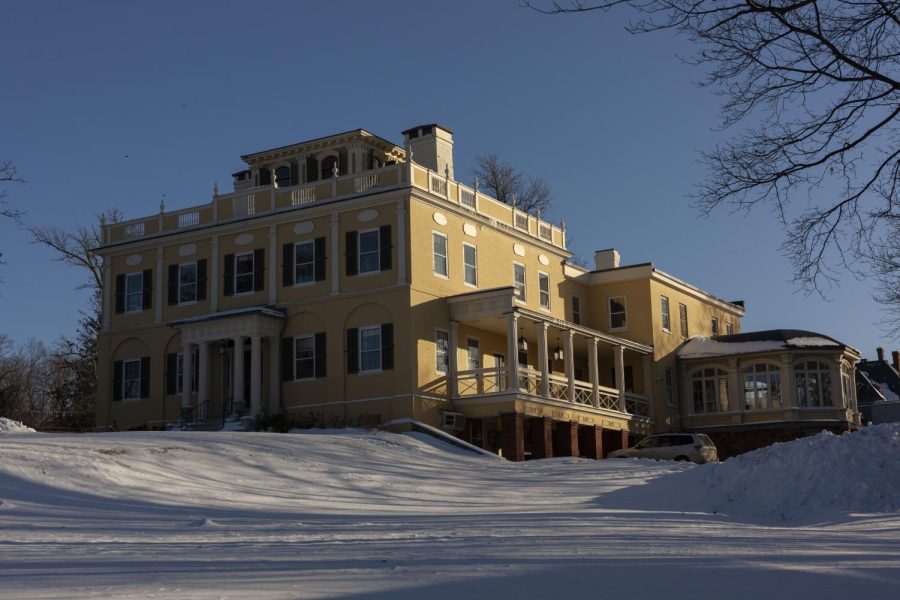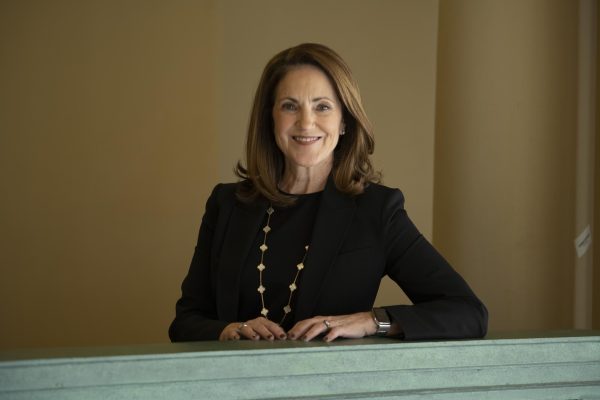UVM Foundation’s employee media policy sparks debate over ethics and legality
The Grasse Mount is home to the UVM Foundation, located at 411 Main St.
UVM Foundation prevents employees from speaking to the press, according to its policy, which holds legal and ethical concerns, said Lindsie Rank, a lawyer for the Foundation for Individual Rights in Education.
UVM Foundation is a private entity that is associated with and raises money for UVM — a public institution. There is no publicized documentation of this policy, but it is given to employees upon hiring in their handbook, said Jim Keller, interim president and CEO of the UVM Foundation.
“Only designated spokespersons are authorized to speak to the media on behalf of the Foundation,” the employee handbook stated. “The designated spokesperson to speak on behalf of the Foundation is the president and CEO.”
The policy exists primarily because the UVM Foundation deals with private donors who want to maintain privacy and confidentiality, Keller said.
The First Amendment prohibits laws that inhibit the freedom of speech or press, according to the federal government’s website. It only protects against the censorship of public state actors, said Mike Hiestand, a legal counselor with the Student Press Law Center. Private institutions have more freedom to create limiting policies pertaining to the media.
“It’s generally illegal for both private and public colleges to tell employees that they can’t talk to reporters on matters of public concern [or workplace conditions],” Rank said. “I’m not trained as an ethicist, but from a personal standpoint, I think it’s totally unethical and immoral.”
Although the First Amendment is not applicable to private employees, they do have a statutory right to speak publicly or to the press about grievances surrounding the terms and conditions of their employment without employer authorization, according to the National Labor Relations Act.
“[Our policy] has nothing to do with ethics, it’s practical business,” Keller said. “It’s not an ethical issue.”
University foundations are non-profit organizations, Hiestand said. Their donations are solely derived from private citizens and various corporations.
“Over the years, many university foundations have grown into multi-million dollar organizations,” the SPLC website stated.
Each state has different laws regarding employee media policies that vary from institution to institution, Hiestand said.
“Public school employees have First Amendment protection,” Hiestand said. “The whole reason, at least in many cases, that public colleges have started these private foundations, is to avoid public scrutiny.”
Because the UVM Foundation is private, they may argue that it should not be as heavily subjugated to compliance with Vermont’s open record laws to the extent that the University itself would be, Hiestand said.
Open record laws, also known as the Freedom of Information Act, states any individual has the right to request access from federal records, according to the U.S. Department of State website.
UVM Foundation’s employee handbook states all public records act inquiries should be directed to the appropriate spokesperson, or the President and CEO. If unavailable, the designated spokesperson is the Chair of the Board of Directors, or Vice Chair if the Chair is unavailable.
“I’m not aware of any sort of litigation case law in Vermont that has addressed that question of whether or not a foundation raising money hand in hand with a public institution should be treated like a public agency for purposes of the open record laws,” Hiestand said.
If it was federally determined that the Foundation is a private organization, its employees would not have First Amendment protection, Hiestand said. The big question is whether it’s ethical to deny an employee the right to speak with the media, whether they work in the public or private sector.
“It’s a real trend where institutions are telling employees, faculty even, student employees, like RAs, that they aren’t allowed to speak to the media without prior permission,” Rank said.
If UVM Foundation employees had complaints about their working conditions, they’d be expected to deal with the issue internally, Keller said. However, Keller said the UVM Foundation’s media policy doesn’t deny employees the right to adhere to NLRA statutory rights.
Nothing in the employee handbook explicitly outlines NLRA and whistleblower exceptions to the organization’s internal employee media policy, according to the employee handbook.
“It just seems very sneaky, very underhanded,” Hiestand said. “The reason that these foundations were put in place in the first place, in many cases, is specifically to be sneaky and underhanded.”
Public institutions are largely funded by taxpayer dollars, so the public should have a right to know what’s going on in these institutions and with their private fundraising affiliates, Rank said.










